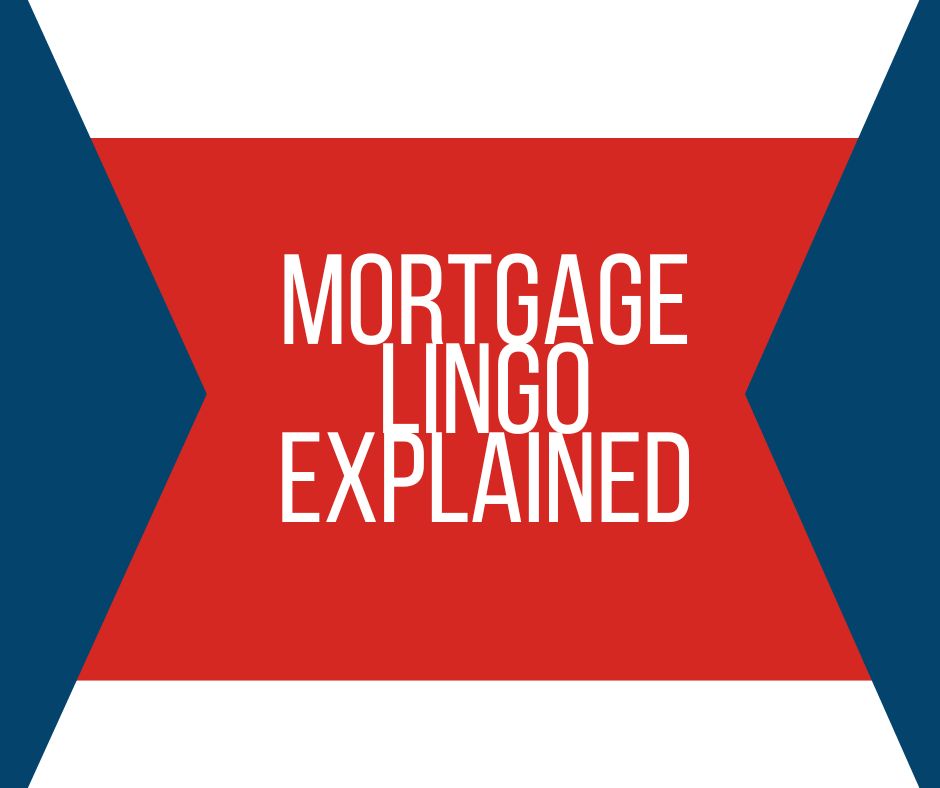
Mortgage Lingo Cheat Sheet
1. Adjustable-Rate Mortgage (ARM):
A mortgage with an interest rate that changes periodically based on a specific index, leading to varying monthly payments.
2. Amortization:
The repayment of principal from scheduled mortgage payments that exceed the interest due. Each payment reduces the loan balance by the amount of the payment minus the interest portion.
3. Appraisal:
An evaluation of a property’s market value by a licensed appraiser to ensure the loan amount is appropriate for the home’s value. You will pay a fee for this report.
4. Appraiser:
A trained professional who determines the appraised value of a property, providing an opinion and reasoning in a report.
5. Balloon Mortgage:
A mortgage with low monthly payments for an initial period, after which a large lump sum (balloon payment) is due.
6. Closing Costs:
Fees and expenses (in addition to the down payment) that borrowers and sellers must pay to complete a real estate transaction.
7. Closing Disclosure (CD):
A detailed form providing final information about your mortgage loan, including loan terms and costs, given at least three days before closing.
8. Construction Loan:
A short-term, interim loan for financing the cost of building a home, with funds advanced periodically as construction progresses.
9. Conventional Loan:
A mortgage not guaranteed or insured by the government, offered by private lenders.
10. Credit Report Fee:
A fee for obtaining a report that shows your credit history, used by lenders to assess your creditworthiness.
11. Default:
The failure to meet the terms of a mortgage agreement, typically by not making timely payments.
12. Delinquency:
The failure to make timely mortgage payments under a loan agreement, potentially leading to default.
13. Down Payment:
The portion of the home’s purchase price paid upfront in cash, not covered by the mortgage loan.
14. Earnest Money Deposit:
A deposit showing the buyer’s good faith in purchasing a home, which may become part of the down payment or be forfeited if the buyer fails to follow through.
15. Equity:
The difference between the market value of your home and the outstanding mortgage balance.
16. Escrow Account:
An account where a portion of your monthly mortgage payment is deposited to cover annual charges for homeowner’s insurance, mortgage insurance, and property taxes.
17. Escrow Agent:
A person or entity holding documents and funds on behalf of both parties during the transfer of real property, typically an attorney or a title company.
18. FHA Mortgage:
A mortgage insured by the Federal Housing Administration, offering a low down payment requirement but with a low maximum loan amount.
19. Flood Certification Fee:
A fee for determining if the property is located in a flood-prone area.
20. Foreclosure:
A legal process where the lender sells the property to recover the loan amount after the borrower defaults.
21. Good Faith Estimate (GFE):
An estimate of the settlement charges and loan terms provided by the lender.
22. Government Recording and Transfer Charges:
Fees for legally recording your deed and mortgage, often paid by the borrower or seller.
23. Home Inspection:
An inspection of the mechanical, electrical, and structural aspects of a home, for which you pay a fee and receive a report on the condition of the property.
24. Homeowner’s Insurance:
Insurance that protects your home and belongings from loss, such as theft or fire, usually required by lenders.
25. HUD-1 Settlement Statement:
A form that itemizes the services and fees charged to you in a real estate transaction, provided at least one day before settlement.
26. Hybrid ARM:
A loan with a fixed-rate period followed by an adjustable-rate period, such as a 3/1 ARM, which has a fixed rate for three years and adjusts annually afterward.
27. Interest:
The cost of borrowing money, expressed as a percentage of the loan amount.
28. Interest Rate:
The percentage charged by the lender for borrowing money, affecting your monthly payments.
29. Lender Inspection Fees:
Fees for inspections conducted by the lender or an outside inspector, often for newly constructed homes.
30. Loan Estimate (LE):
A form provided by the lender that includes important details about your loan, given after you apply for a mortgage.
31. Loan-to-Value Ratio (LTV):
A percentage calculated by dividing the loan amount by the property’s price or appraised value, used to assess lending risk.
32. Mortgage:
A legal agreement transferring interest in property to a lender as security for a loan, sometimes involving a Deed of Trust.
33. Origination Fee:
A fee charged by the lender for processing the mortgage loan.
34. Origination Services:
Services involved in creating a mortgage loan, including loan application, processing, underwriting, and funding.
35. Payment Shock:
A situation where monthly mortgage payments on an adjustable-rate mortgage (ARM) rise significantly, making them unaffordable.
36. PITI:
Principal, Interest, Taxes, and Insurance – the four components of a monthly mortgage payment.
37. Pest Inspection:
An inspection for termites or other pest infestations, often required by lenders.
38. Point(s):
Fees paid to the lender to reduce the interest rate on a loan, with one point equal to 1% of the loan amount.
39. Prepaid Items:
Items such as insurance premiums and property taxes that lenders often require to be paid in advance.
40. Pre-Approval:
A lender’s commitment to provide a mortgage loan for a specific borrower, often conditional on the borrower’s financial situation remaining the same.
41. Prepayment Penalty:
A fee charged if the mortgage loan is paid off before the scheduled due date.
42. Private Mortgage Insurance (PMI):
Insurance protecting the lender if the borrower defaults on the loan, usually required if the down payment is less than 20%.
43. RD (Rural Development) Loan:
A USDA loan program offering mortgages to rural property owners with no down payment requirement.
44. Refinance:
The process of paying off an old loan with a new one, often to obtain a lower interest rate or to change loan terms.
45. Sales Agreement:
A contract signed by the buyer and seller stating the terms and conditions of the property sale, also known as an Agreement of Sale or Purchase Contract.
46. Settlement:
The process of formally transferring property ownership from the seller to the buyer, involving payment of closing costs and signing of legal documents.
47. Settlement/Closing Agent:
A person who oversees the real estate transaction, ensuring legal documents are completed and funds are transferred according to the contract.
48. Settlement Costs/Closing Costs:
Expenses over and above the selling price of the property that must be paid to cover the transfer of ownership.
49. Survey Fee:
A fee for a drawing of your property showing the location of the lot, structures, and any encroachments.
50. Title Insurance:
Insurance protecting the lender and the buyer from losses due to disputes over property ownership.
51. Title Service Fees:
Charges for title search and title insurance, including services of a title or settlement agent.
52. Tolerance Category:
The maximum amount settlement cost charges can exceed the amount of a good faith estimate, often capped at 10% if the originator selects the service provider.
53. Underwriting:
The process by which the lender evaluates the risk of lending you money, including a review of your credit history and financial situation.
54. VA Mortgage:
A mortgage guaranteed by the Veterans Administration, with no down payment requirement, available to veterans and active-duty military personnel.
Understanding these terms will empower you to navigate the mortgage application and homebuying process with confidence and clarity. Happy house hunting!
